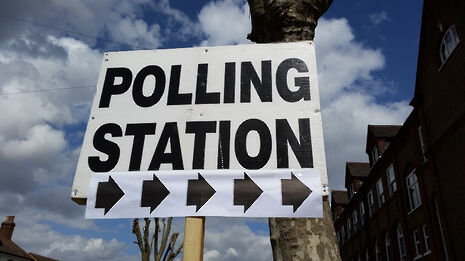The electorate isn’t always right
Of course people can criticise the election result, even if one party won, says Vincent Garton

Since the election, there’s been a spate of opinion pieces complaining about the intolerance to which Tory-voters have been treated, the foibles of the ‘loony left’, and the like.
In many cases the hypocrisy of this position is obvious: many who complain about ‘political correctness’ and the proliferation of safe spaces now appear to want to turn the entire British political arena into a safe space for them. The more fundamental problem, however, is that such articles almost invariably betray a distorted and naïve view of politics.
This view is best represented by the idea that the electorate cannot be wrong. Of course, we know empirically that the British public are outright wrong on many important issues—not least because of the distorted information presented us by our media. And yes, it is certainly true, as some have pointed out in response to this, that the election did not show a quantitative majority of voters behind the Conservatives. Yet there wasn’t even a majority behind the Labour party in 1945. The electorate did speak. The problem with the notion of electoral infallibility is more fundamental: we are expected to accept that this superficially plausible idea is the basic principle underlying Western democracy. In fact it is anything but.
Successful liberal democracies have never shied from establishing fundamental values beyond everyday politics. The death penalty, for instance, is gone for good in Britain despite the fact that there’s never been a lasting majority for its abolition.
Even when policy is decided by electoral contest, however, we must never be afraid to speak out against ‘the will of the people’ when we think it’s radically wrong—like the post-election protestors in London did, for better or worse. It is not ‘anti-democratic’ to realise that the majority believing something to be right does not make it so. It is common sense.
This is because democracy doesn’t just mean carrying the triumphant views of the electors into policy: it means fundamentally moulding those views. Politics may be the art of the compromise, but at a more basic level it is also a struggle to define the truth. This means that politically active people must be prepared to accept that most people might be wrong—and to attempt to make them right.
If politicians and activists are not shaping those views, other people, less democratically responsible, already are. We should not be complaining about our political opponents being abrasive and irascible. It’s a sign of the honesty that politics as a fight for the truth demands—yes, even if that honesty is calling Tories (or anyone else) rude names. Throwing up our hands and abandoning our views in the light of electoral defeat is not just intellectual cowardice, it is also negligent.
This is what focus-group politics and the relentless drive to a softly spoken centre fail to accomplish. Instead of letting the vanguard of twee banality turn politics at the highest level into a dull and endless horizon of sycophancy, we should be happy when at least some of our politicians are less intellectually compromising, less ‘tolerant’ of their opposition, more willing to defend to the bitter end the fundamental principles on which they stand. This was something that the Labour party in 2015 singularly failed to realise. Not exactly a ‘dictator of the electoral battlefield’, Ed Miliband.
Of course we don’t need to insult people at every turn we get. But the British public are not toddlers who will get frightened and hide when an irrelevant student activist calls Tories cunts or a Labour politician uses a scary word like ‘socialism’.
If it was the much-feted ‘Shy Tory factor’ that swung the election, we would expect live interviews (such as phone polls) to have yielded results that were even more divergent than the anonymised online polls. Yet it was—repeatedly—phone polls that predicted the result, often with significant accuracy, and were suppressed by pollsters worried about contradicting the mainstream narrative. In Labour safe seats, surely the areas where voters would be most scared of being ‘outed’ as Tories, Labour gained votes. Despite their calamitous performance north of the border, indeed, Labour increased its share of the vote overall.
We won’t know for sure until the polling agencies have conducted their post-mortems, but it’s worth being sceptial of the common wisdom.
In the 1920s, the archconservative Carl Schmitt posited that any genuine political theory must suppose that humans are evil. His idea was that politics is more complicated than just trusting the inherent knowledge of the people. It’s a shame that the modern right has lost sight of the austere, corrective realism that Schmitt, for all his flaws, represented.
 News / Report suggests Cambridge the hardest place to get a first in the country23 January 2026
News / Report suggests Cambridge the hardest place to get a first in the country23 January 2026 News / Students condemn ‘insidious’ Israel trip23 January 2026
News / Students condemn ‘insidious’ Israel trip23 January 2026 News / Cambridge ranks in the top ten for every subject area in 202623 January 2026
News / Cambridge ranks in the top ten for every subject area in 202623 January 2026 News / Uni denounced for bypassing ‘democratic structures’23 January 2026
News / Uni denounced for bypassing ‘democratic structures’23 January 2026 Comment / Gardies and Harvey’s are not the first, and they won’t be the last23 January 2026
Comment / Gardies and Harvey’s are not the first, and they won’t be the last23 January 2026








